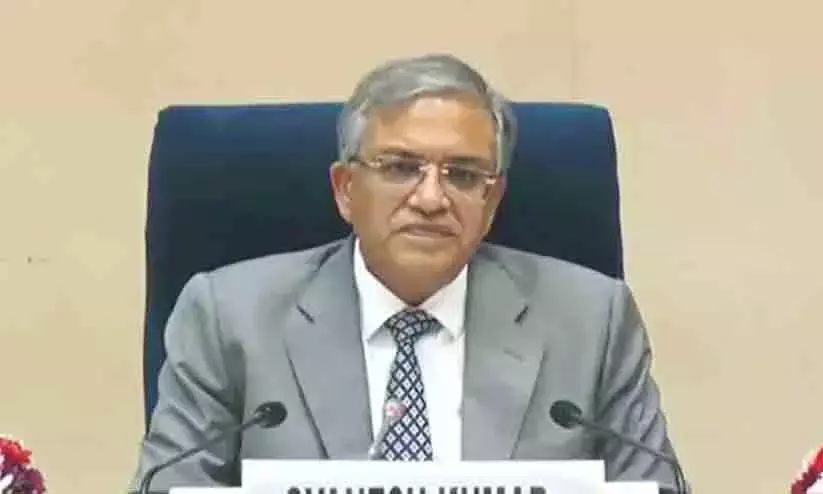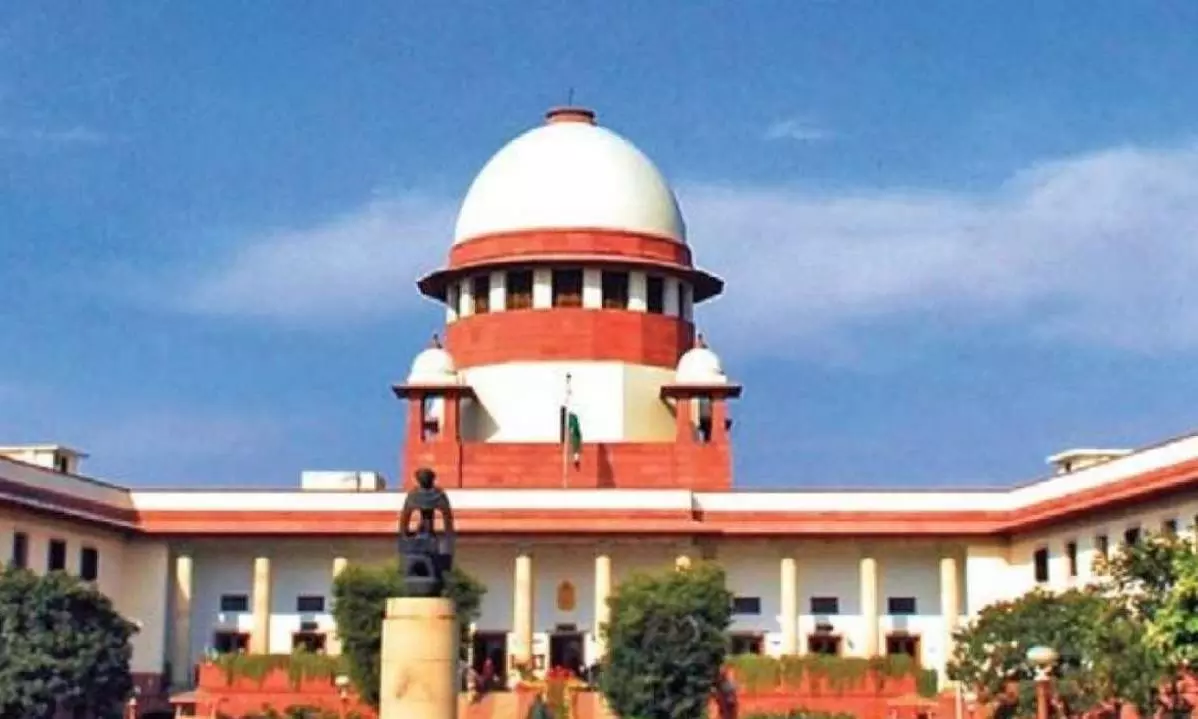
Rethinking on Collegium system surfacing again
text_fieldsThe meeting of party leaders called by Rajya Sabha Chairman Jagdeep Dhankhar on Tuesday and the apparent consensus there seen between the ruling and opposition parties there was unusual in the current political climate. Amid the controversy over the discovery of currency notes in a storeroom attached to the residence of Delhi High Court Judge Yashwant Verma, Dhankhar himself had spoken in the House more than once about the supremacy of Parliament and the consequences for democracy when the credibility of the judiciary is undermined. The crux of the current discussion lies in the interrelationship between the two. What stood out during the discussions that the current collegium system followed in the appointment of Supreme Court and High Court judges is the root cause of the problems and that a law passed by Parliament should be the basis for the appointment of judges. There was an implied reproach that if the Judicial Appointments Commission system passed in 2014 had been in place for this purpose, such judges would not have been appointed. The Leader of the House, Union Minister J.P. Nadda, Leader of the Opposition, Congress President Mallikarjun Kharge and other party leaders were called to the chamber to discuss the issue. The party leaders are said to have generally agreed that a law like the National Judicial Appointments Commission Act, passed in 2014, is needed for the appointment of judges.
Also read: SC Collegium transfers Delhi HC judge after recovering ‘cash pile’ at his residence
Currently, the names for the appointment of Supreme Court judges are recommended to the government by the Collegium, which consists of the Chief Justice and the four senior-most judges of the Supreme Court. If the government approves, it will recommend them to the President. If there is disagreement, it can be sent back to the Collegium. The Collegium can amend the recommendations and recommend other names. Otherwise, if the same recommendations are sent again, the government is obliged to accept them. In 2014, the National Judicial Appointments Commission Act, which was introduced by the Modi government itself, was passed by Parliament, being a constitutional amendment, with a two-thirds majority and was approved by more than half of the states, including those ruled by the opposition. However, based on subsequent petitions, the Supreme Court struck down the provisions of the Act, determining that it would undermine the independence of the judiciary, which is part of the basic structure of the Constitution, and the Collegium system was re-introduced with its present provisions in 2015.
Also read: Justice AS Oka new member in SC Collegium
The principles put forward by the Rajya Sabha Chairman need not be endorsed as such, but it is true that the collegium has its weaknesses. The main flaw is the lack of transparency. The proceedings of the collegium are not available to the public. Sometimes, prejudices and nepotisms can influence the recommendations. However, appointments made according to the interests of the central government are not the solution. It can be more serious. Most parties supported the 2014 Act because it envisaged be a representative panel and would include members from outside the government, including the Leader of the Opposition and two prominent members of the public. However, the Supreme Court did not find it as adequately protecting the independence of the judiciary.
Also read: SC Collegium rejects Centre’s objection to Kerala HC judge appointment
Dhankhar is now arguing that if the collegium continues, there will be no place for Parliament. His and Minister Nadda’s argument that if the appointments of judges were through the Appointments Commission, there would not have been incidents like Justice Verma’s is too high an expectation. While during the discussions, the parties have suddenly come out against the collegium and in favour of the legislation in the Rajya Sabha, that is not the position that the parties have indicated outside separately. Congress leader Jairam Ramesh said that support for such a bill cannot be guaranteed. Congress’s own Abhishek Singhvi said that even if the Congress is likely to support it, they cannot express their position will until the government puts forward its proposal. Since it is a constitutional amendment that requires a two-thirds majority in Parliament and the approval of more than half the state assemblies, the government may try to take a path of consensus. In any case, it is clear that the current government's opposition to the collegium system is not aimed at stemming the degradation of judges, but rather driven by its urge to keep things in its own hands.
Also read: Senior Advocate Dushyant Dave questions the functioning of Collegium
Although Parliament has the supreme power to make laws, the Constitution should stand above it. Its basic structure is what keeps India a stable nation in many ways. If there are dark spots in the current judiciary, the first thing that needs to be done is to take appropriate remedial measures to resolve them. And if in the long run, a system can be created that ensures neutrality, transparency, and impartiality in the appointments of judges not servile to the executive, that would be ideal. Let us hope that the current discussions eventually lead to that.
Also read: CJI DY Chandrachud defends collegium system, highlights transparency efforts






















